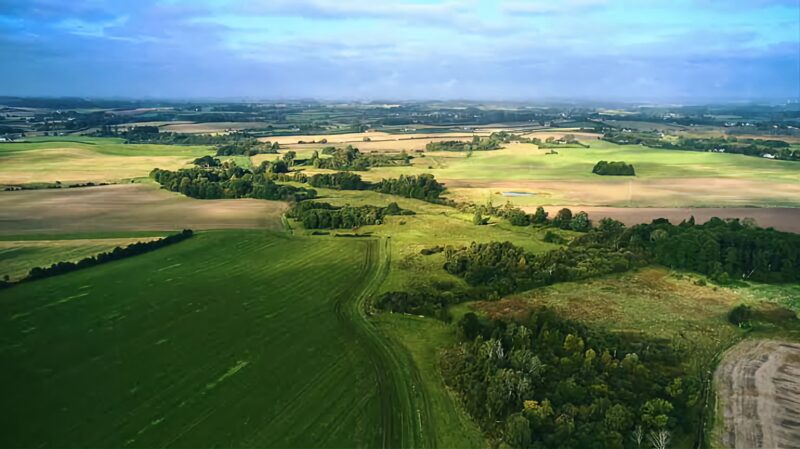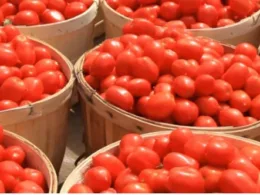Denmark Commits to Restoring 15% of Its Farmland to Nature by Planting a Billion Trees and Reviving Peatlands in a Groundbreaking Effort to Slash Agricultural Emissions and Combat Climate Change
Denmark is embarking on a bold environmental initiative, setting a global benchmark by restoring 15% of its farmland to nature. This ambitious plan includes planting one billion trees and converting farmland into forests and peatlands, all in a bid to combat climate change and reduce agricultural emissions.
A Nation Restoring Nature
The Danish government will incentivize farmers to repurpose portions of their land currently used for hay and animal feed. These fields will transform into lush forests and carbon-absorbing peatlands, restoring nearly 10% of the nation’s land area to its natural state.
This initiative is part of Denmark’s broader strategy to cut greenhouse gas emissions by 70% by 2030, compared to 1990 levels. The transition includes redirecting farm subsidies to support eco-friendly practices, such as reducing nitrogen fertilizer use, and introducing a groundbreaking livestock tax.
Tackling Agriculture’s Carbon Footprint
Agriculture, which accounts for about a quarter of global emissions, is a major challenge for climate action. In Denmark, it represents a growing share of the nation’s carbon footprint due to significant progress in other sectors like energy and transport.
“Denmark’s plan goes farther than any other country in tackling agricultural emissions,”
says Tim Searchinger, a senior researcher at Princeton University. The new livestock tax targets emissions above a certain threshold, encouraging farmers to adopt more sustainable methods of meat and dairy production.
Rethinking Diets and Farming
The shift will affect consumer behavior as prices for carbon-intensive products like milk rise. Analysts expect Danish consumers to pivot toward alternatives, such as plant-based dairy. Meanwhile, less animal farming will mean reduced reliance on cattle feed crops, which currently dominate Denmark’s farmland.
Restoring peatlands and forests will also sequester carbon, offsetting emissions and regenerating ecosystems that were lost centuries ago. While this may lead to increased food imports, experts argue that Denmark’s neighboring countries, such as Germany, are also aligning with climate goals, ensuring sustainable sourcing.
Long-Term Vision and Global Impact
Denmark’s political commitment to climate action provides consistency and long-term planning, ensuring cross-sector collaboration between the government, farmers, and environmental groups. The country’s ability to implement effective solutions, from wind energy to reduced fertilizer use, serves as a model for tackling climate challenges.
However, there are calls for additional measures to avoid shifting the burden to other nations.
“This is about getting more carbon in the landscape in ways that are real,”
says Searchinger, adding that Denmark’s approach avoids controversial methods with uncertain outcomes, like regenerative agriculture.
A Blueprint for Change
With this initiative, Denmark demonstrates that bold, science-driven policies can address agricultural emissions. By transforming its landscape, the nation not only fights climate change but also sets a precedent for sustainable farming practices worldwide.










Join our Channel...